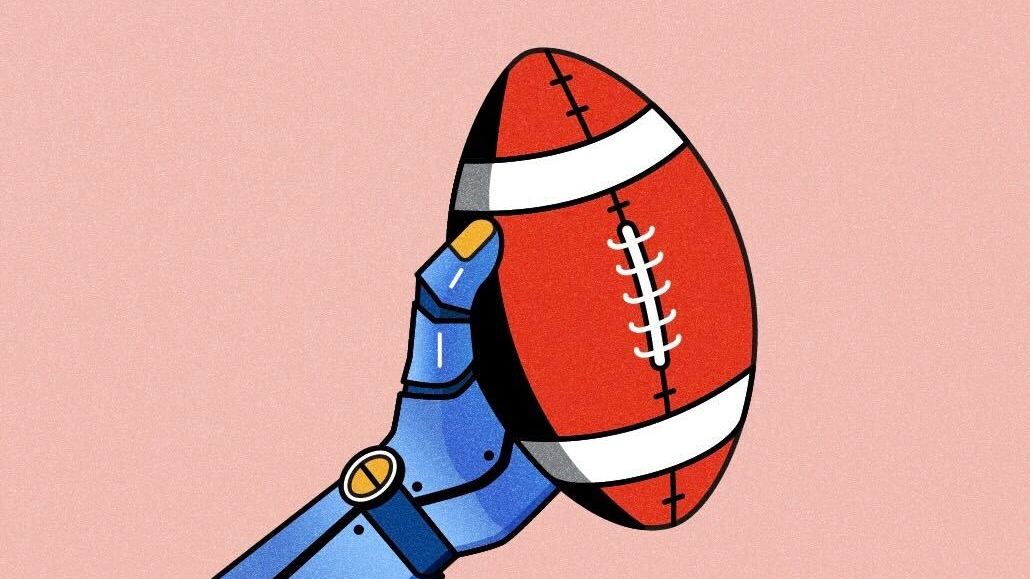
This story is part of Digiday’s annual coverage of the Super Bowl. More from the series →
Instead of human social media strategists and creatives, ChatGPT will be the brains behind marketing agency Giant Spoon’s Super Bowl tweets this year.
“We’re giving our creative department [Super Bowl Sunday] off and ChatGPT will be generating all of our Super Bowl reaction content,” said Noel Cottrell, partner and creative chair at Giant Spoon. “It’s literally, we’re handing the keys to the kingdom over to ChatGPT.”
ChatGPT is an artificial intelligence bot developed by OpenAI that has been drumming up buzz throughout the industry among advertisers and brands alike. Giant Spoon, which has worked with clients like Netflix, Petco and General Electric, will leverage the AI tool on Super Bowl Sunday to generate live tweets during the big game.
While there will be someone from the Giant Spoon team who will plug in necessary keywords to generate the copy, the operation won’t be anything reminiscent of a Super Bowl war room, all-hands-on-deck effort, per Cottrell. “It’ll be Giant Spoon tweeting about the ads, and also about the content and about everything that’s happening in the Super Bowl. But there will be no human [team] behind it,” he added.
Part of Giant Spoon’s ChatGPT Super Bowl initiative will be an effort to boost awareness about the agency’s creativity. However, it’ll also be a test for ChatGPT and artificial intelligence capabilities, what the technology can do and what it will mean for the advertising industry.
In the past, Giant Spoon’s experimentation with ChatGPT has been limited to internal graphics, pitch decks and some content creation. Should all go well during the Super Bowl, it could be a glimpse into AI’s potential for future use in client-facing work.
In recent weeks, ChatGPT and AI have been major talking points throughout the marketing industry, with some using it to pull and aggregate information for client briefs, copy writing and other parts of the creative process, similar to Giant Spoon. Others are using the technology to streamline workflow processes. BuzzFeed recently announced plans to leverage ChatGPT for quizzes and other types of content, as the publisher looks to AI to play a bigger role for the company this year.
As AI gains popularity, some marketers are moving beyond the basics of tools like ChatGPT and embracing subscription services. Meanwhile, Google is reportedly testing its own AI chatbot, Bard A.I., that could have similarities to ChatGPT.
But for all of the buzz ChatGPT creator OpenAI has generated, there’s hesitancy in the industry to fully embrace AI, at least for now. To that point, Avocados From Mexico rescinded plans to use ChatGPT in its Super Bowl ad plans, backtracking its original idea to create user generated content during the big game, according to AdAge.
“ChatGPT on the surface may look like the future of creative writing but if you dive in and take a deeper look, it’s approximative at best,” Adan Romero, chief creative officer at Publicis digital agency FKA, said in an emailed statement to Digiday. “It’s a tool that might help you get an idea out of your head but it’s not ready to be my copywriter.”
Despite its status as the latest marketing craze, Romero and others in the industry have yet to be convinced that ChatGPT can be used for consumer-facing initiatives, especially during the biggest advertising moment of the year: the Super Bowl. That’s not to say there’s no hope for AI, which does have marketing applications such as building upon creative ideas and delivering visual concepts.
“It’s years away from really being something that can talk to society,” Romero said. “We’re really trying to figure out how do we use it and what’s the best way to utilize it as a tool.”
At Giant Spoon, ChatGPT is still in the experimental stage and it is yet to be determined if the AI function will play a role in consumer-facing work after the Super Bowl, as Cottrell did not disclose plans for the future.
“We’re going to be sending out whatever it generates. It could be fun,” he said. “This is a stunt activation thing to shine a light on our company.”
More in Marketing

TikTok pushes deeper into AI-powered ads amid uncertainty over U.S. ban
TikTok has big plans for Smart+ and search this year, despite its ongoing legal battle.

Sam’s Club sees initial success with digital checkout
Sam’s Club’s CFO said at an investment conference that “if we fast forward into the future,” there will probably be no checkout registers.

How employment is projected to transform in media during the AI era
Experts offer pointers on how to future-proof your career or re-enter the job market in a period of disruption.








